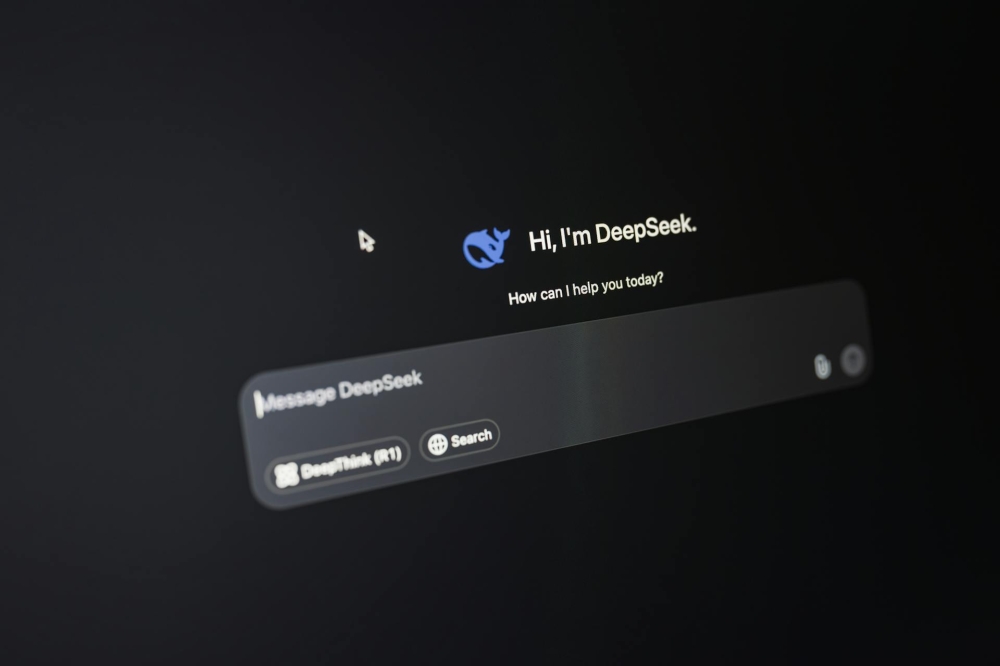In every era, there are those who choose to see—and those who are made to see. At the turn of the millennium, the internet was dismissed as a speculative bubble. And in many ways, it was.
The media called it overhyped. Economists, scholars, and self-proclaimed intellectuals claimed it held little real value. Companies clung to legacy models, confident that brick-and-mortar businesses would always reign supreme.

Yet from the wreckage of that bubble emerged Amazon, Google, and PayPal—companies that would go on to reshape commerce, information, and finance. Those who recognised the internet not as a fleeting trend but as a fundamental shift became the architects of the 21st century. Today, we stand on the edge of another transformation.
AI is not just the future—it is the past and the present. Like the internet in the 1990s, it is misunderstood, debated, and often dismissed. Yes, we are in a speculative bubble.
But what emerges from its collapse will redefine how we think about intelligence itself. 1995: The Netscape Template In 1995, Netscape Communications went public to enormous fanfare. Its IPO was a spectacle—its stock price surged from $28 to over $75 in a single day.
At its peak, Netscape was valued at nearly $3 billion, despite not being profitable. This moment set the tone for a wave of internet startups, driven more by speculation than solid business models. The bubble expanded rapidly.
And as Microsoft’s Internet Explorer overtook Netscape, the cracks in unsustainable investment strategies were laid bare. But the true legacy of Netscape wasn't its business—it was its bold step of going public. That move opened the floodgates for a new generation of internet companies.
Many failed. But in their failure, they laid the groundwork for the internet to become universal. The real winners were not those chasing hype but those building infrastructure—Amazon, Google, and others that quietly pursued long-term visions and stayed the course.
2012: The Neural Awakening In 2012, a team led by Geoffrey Hinton at the University of Toronto created AlexNet—a deep neural network that would catalyze the modern AI revolution. By winning the ImageNet competition, AlexNet demonstrated that GPUs weren’t just for gaming—they were powerful engines for deep learning. This marked a turning point.
Intelligence was no longer a simple input-output process; it became a dynamic exchange between human and machine cognition. In the 1990s, CPUs from Intel and AMD powered the computing age. But the AI age belongs to GPUs.
No company embodies this better than Nvidia, whose market cap surged more than 800% from 2012 to 2025. Deep learning models transformed GPUs into the brains of the new era. Just as fiber optics, server farms, and processors came before the rise of social media and e-commerce, today’s GPUs, large language models, and neural networks are moving faster than we can fully grasp.
The 1-in-100 Rule of AI In the dot-com boom, if you had invested in 100 startups, 99 would have failed. But the one that survived might have been Amazon, Google, or PayPal—a trillion-dollar bet that paid off. In 2025, venture capitalists understand this.
Firms like Y Combinator, Sequoia, SoftBank, and Andreessen Horowitz (a16z) are betting on AI with the same philosophy: fund 100, expect 99 to fail—but that one winner could transform everything. With AI, the potential return is even greater—and the stakes are higher. The Inevitable AGI Era Artificial General Intelligence (AGI) is no longer science fiction.
It's not a question of if, but when. When 99 AI startups fail, the one that succeeds will do for intelligence what Google did for information—and what Amazon did for commerce. Every screen, every device, every system will eventually run an AI agent: an assistant, a decision-maker, an invisible partner in our daily workflows.
AI will not be a novelty. It will be as essential as electricity or the internet. Yes, fears exist—doomsday myths, open-source threats, the AI apocalypse.
But the real story is less about destruction and more about disruption. AGI is the next Excel, the next Word, the next SEO. And just like during the Industrial Revolution, the skeptics see loss where history has shown transformation.
Jobs won’t be taken by AI—they’ll be taken by people who know how to use AI. Just as brick-and-mortar businesses were overtaken by e-commerce giants, companies slow to adopt AI will be left behind. AGI won’t be one piece of software.
It will be an entire ecosystem—woven into workflows, decision trees, and knowledge systems. Decision-making will scale. AI won’t just automate—it will restructure how we think.
An accountant once lost a job to someone who knew Excel. Tomorrow, someone will lose a job to an AI-literate counterpart who understands prompts, agents, and automated reasoning. So the question is: Will you be the one who chooses to see—or the one who will be made to see?.
Politics

AI: Do you see it, or will it force you to look?

In every era, there are those who choose to see—and those who are made to see.At the turn of the millennium, the internet was dismissed as a speculative bubble. And in many way...














